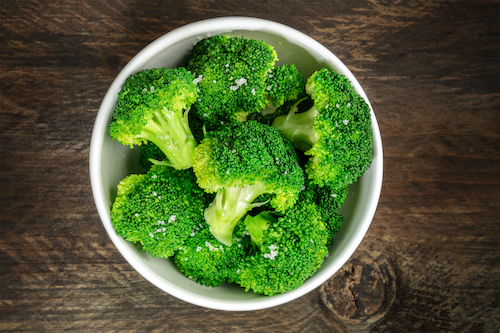The Health Benefits of Raw Produce Vs. Cooked Produce
 Thursday, December 16, 2021 at 10:05AM
Thursday, December 16, 2021 at 10:05AM 
Fresh. Organic. Packed with flavor. Harvested straight from the garden, most fruits and vegetables are richest in fiber and at their peak of their antioxidant, mineral, and vitamin content.
And it would seem logical that eating your fresh produce uncooked would surely make it more nutritious. After all, wouldn’t the process of heating damage or destroy the nutrients that are naturally present in the produce?
The short answer is ‘not always’.
In fact, research shows that some vegetable varieties actually offer new health benefits when cooked. During the process of cooking, cell walls are weakened or completely broken through, allowing more soluble vitamins, minerals and antioxidants to become available to the body. And many of these newly-released nutrients are even more readily-available when cooked along with a healthy fat source like olive oil.
But there is a trade off, and the nutrition gained from cooked produce, usually come with the loss of the health benefits from eating the same vegetable variety uncooked.
For example, cooking tomatoes increases the availability of a cancer-fighting carotenoid called lycopene, but diminishes the amount of vitamin C and potassium present when eating tomatoes raw. And the beneficial antioxidant lutein that’s present in kale and spinach is absorbed by the body far more efficiently when these leafy greens are cooked along with a fat source like olive oil or butter. Just consider the amount of healthy fat present, and, if cooking with oil, remember not to exceed the oil’s smoke point. When cooking with olive oil, for example, warm the oil in a pan on medium heat, then add and quickly cook your produce, perhaps covering with a lid to speed up the process.
Other studies have shown that cooking organic produce can increase the amount of iron that we absorb when eating many fruit and vegetable varieties. Broccoli, for example, had five times more available iron when cooked, but also lost about as much of its glucosinates - substances present in raw broccoli that are believed to block the growth of cancer cells.
So which is the healthier way to eat your backyard produce, cooked or raw? It seems too close to tell, but that doesn’t really matter, because you can simply include a combination of both in your diet.
Just remember that raw vegetables offer far more fiber than cooked produce. Fiber helps lower cholesterol and regulate blood sugar, and keeps your digestive system healthy. And avoid the temptation to see juicing vegetables as a substitute for eating them uncooked. Research shows that eating raw vegetables has far more health benefits than juicing them, which results in the loss of fiber, nutrients, and vitamins that are found in the skins of many varieties.
And when you do cook your organic produce, consider these tips to minimize nutrient loss during the process.
-Whenever possible, don’t remove the vegetable’s skin before cooking ; the nutrients of many vegetable varieties are found in the skin.
-Try to time your harvest so that the produce is cooked and served right afterwards. This will help maximize the nutritional value of your fresh produce.
-Steaming is perhaps the best cooking method, but produce that’s roasted or grilled will also retain more nutrients than other cooking methods. When steaming produce, use a small amount of water to help minimized the loss of nutrients.
-For vegetable varieties that must be chopped before cooking, cut the pieces in the largest chunks possible. This helps minimize air exposure which reduces the amount of vitamins left after the produce is cooked.
-Cove the pot or pan with a lid, and remove from heat as soon as the vegetables are just tender. These steps help minimize cooking time so that fewer nutrients are lost during the process.








Reader Comments